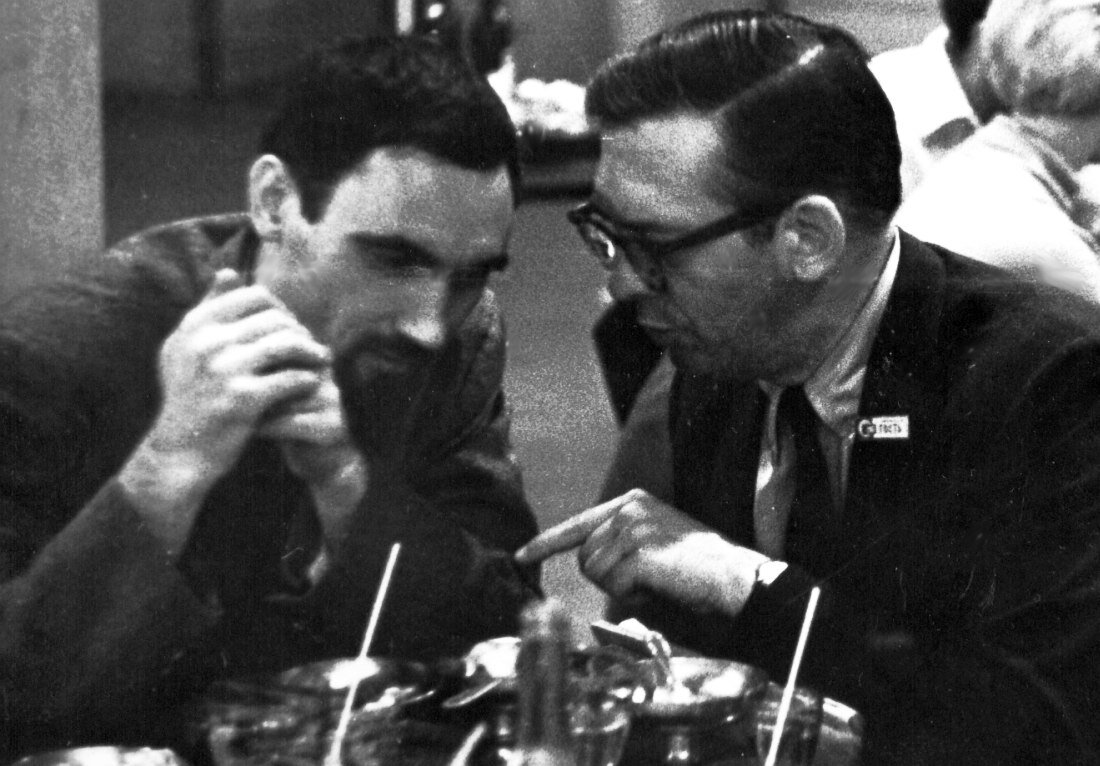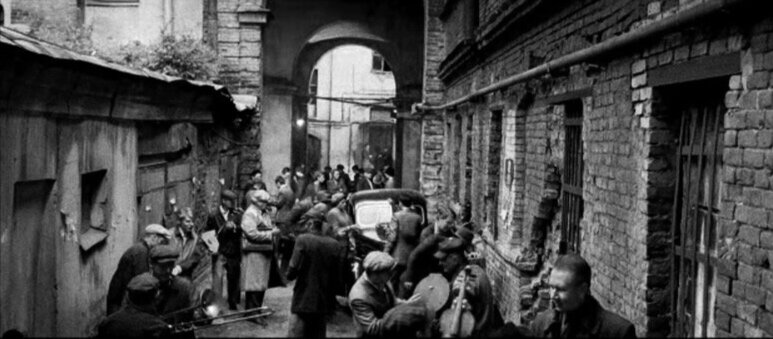Alexey with Wills Conover. host of of Voice of America’s Jazz Hour Moscow 1969
I spent a little time with Alexey Kozlov the legendary sax player at his club in Moscow last year. Alexey’s life story is amazing: growing up in the worst years of the Stalin period, learning to play on a borrowed instrument and becoming one of the best known Russian jazz musicians.
One of the fascinating things he tells of was the ‘Exchange’, sometimes nicknamed affectionately, and with a heavy dose of irony, 'The Stock Exchange’. This was a place in Moscow where music lovers and musicians of various types, especially jazzers, would gather. Jazz of course was banned.
After the war, the Exchange was at the corner of Neglinnaya and Pushechnaya Streets and, from the end of the 50s, was located in an alley by the arches between Marx Avenue and October 25th Street. Promoters needing musicians for an event might come there to hire them so The Exchange functioned as a kind of unofficial agency plus a discrete meeting place for jazz players - many of whom had been forced to give up or play in other styles. Sheet music and instruments could be bought, sold, borrowed and swapped along with x-ray bootlegs of the latest American and British hot tunes.
The Exchange as it appears in the film ‘Stilyagi’
Alexey first started to go to the Exchange in 1956 hoping to learn new piano techniques. He was particularly interested in the left hand technique used to play stride and boogie woogie - The Exchange also operated as a kind of underground jazz school where players could learn from each other and swap tips on style, method and harmony.
He was keen to be counted amongst their company. He enjoyed playing rudimentary jazz piano and even tried to learn double bass but his real hero and inspiration was the American saxophone player Gerry Mulligan. At that time, the sax was banned as an anti-Soviet symbol of American culture beloved only of hooligans - there was the infamous ludicrous claim “'It's just one step from a saxophone to a knife.” Satirical cartoons in magazines like Krokodil would portray ‘Capitalists’ as devils with sticks that resembled saxophones in shape.
But one day Alexey found a pre-war German alto sax hidden under the stage at the youth music club he attended (he told me it had a swastika on it, so presumably had been looted during the war). In an unusually liberal act, the director of the club allowed him to borrow it. Over the next few months he learned to play - getting tips from guys at the exchange, buying reeds from an old man who made them at home and playing along with tunes on smuggled jazz sides and bone records (Igor Brill the pianist also said that bone records acted as a means of learning for him).
And so, as the 60s passed and jazz gradually became more tolerated in the Soviet Union, Russia gained one of its most influential players.
Alexey Kozlov (baritone saxophone) with Vadim Sakun (piano) Nikolay Gromin (guitar), Andrey Tovmosyan (trumpet) at the International Festival "Jazz-Jamboree" Warsaw 1962


